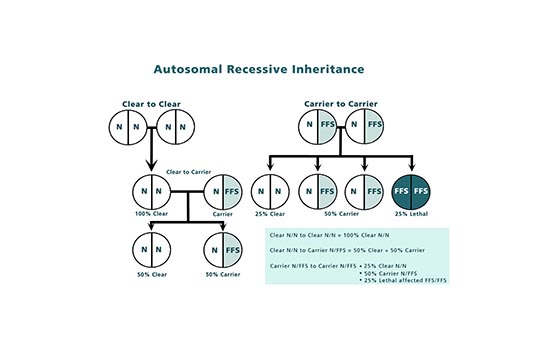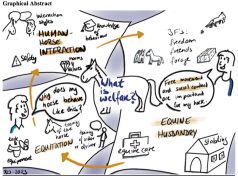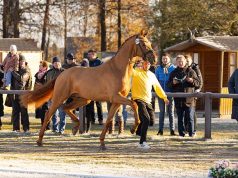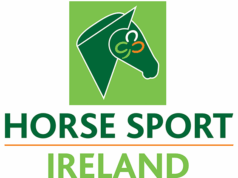On-going report by Jean Llewellyn and Claartje van Andel: In last month’s issue of BN, we published a ‘Chronology’ of WFFS that has now been updated, as promised, for this issue. However, given the volume of news, the update is fairly brief – including only the most important announcements. Since last month, BN has been in correspondence with Dr. Nena Winand PhD of Cornell University in Ithaca, NY, who was responsible for developing the genetic test for WFFS Type 1, which became commercially available in 2013.
Nena Winand has worked at Cornell since 1986, after completing several years of veterinary pathology preceptorships at a number of highly respected schools of veterinary medicine. Winand’s impressive professional resumé lists her research interests as ‘medical genetics and comparative genetics, emphasis: equine genetics.’ She currently holds five patents, including the genetic test for WFFS Type 1.
DNA testing
On May 20, the Dutch Horses.nl website published an article that appears to question the validity of the DNA testing carried out, so far, in the Netherlands by the Van Haeringen Laboratory (VHL) on behalf of a number of major stud farms. Winand reported that in Europe only Laboklin has the license to test. The Van Haeringen Laboratory (VHL), which does all the tests for KWPN and NRPS, does not. “This is not credible science, but business.” Winand continued by saying, “The laboratories that test without a license have not had access to the data on this condition, only the patents issued by Cornell and the patent applications. That is not professional and certainly not science”.
The editors of Horses.nl contacted the VHL laboratory, whose spokesperson, Leanne van de Goor, said, “We have had the patent status checked by a lawyer. The patent is not valid in the Netherlands. It is completely legal that we carry out the test in the Netherlands”. Van de Goor continued by saying, “The mutation for WFFS is published in a scientific article. Based on this information we have developed and validated the test”.
The publication to which VHL refers is the case report by Mounthoux et al., Published in BMC Veterinary Research. Winand responded to VHL’s claim by saying, “The mutation is not in that publication, the mutation is in the Cornell patent application. You can never set up a valid test without the proper controls, for which you need markers of homozygous WFFS cases and carriers. What VHL and other labs have done is to copy a published DNA test protocol without the controls to validate it.”
Winand reports that VHL and a lab in Ireland (where horses from KWPN partner WSI are being tested) would be wise to get a sub-license from Laboklin. “I hope that these laboratories can con- tinue to test, but then through a sub-license of Laboklin. I do not want to interfere with studbooks that use VHL to test, but testing without proper controls is not ideal.”
Horses.nl has asked the Van Haeringen Laboratory for a reaction, but has not received one, to date. (End of Horses.nl item.)...
CLICK HERE TO SUBSCRIBE TO BREEDING NEWS
SUBSCRIBERS CAN READ THE COMPLETE ARTICLE BY LOGGING IN AND RETURNING TO THIS PAGE




